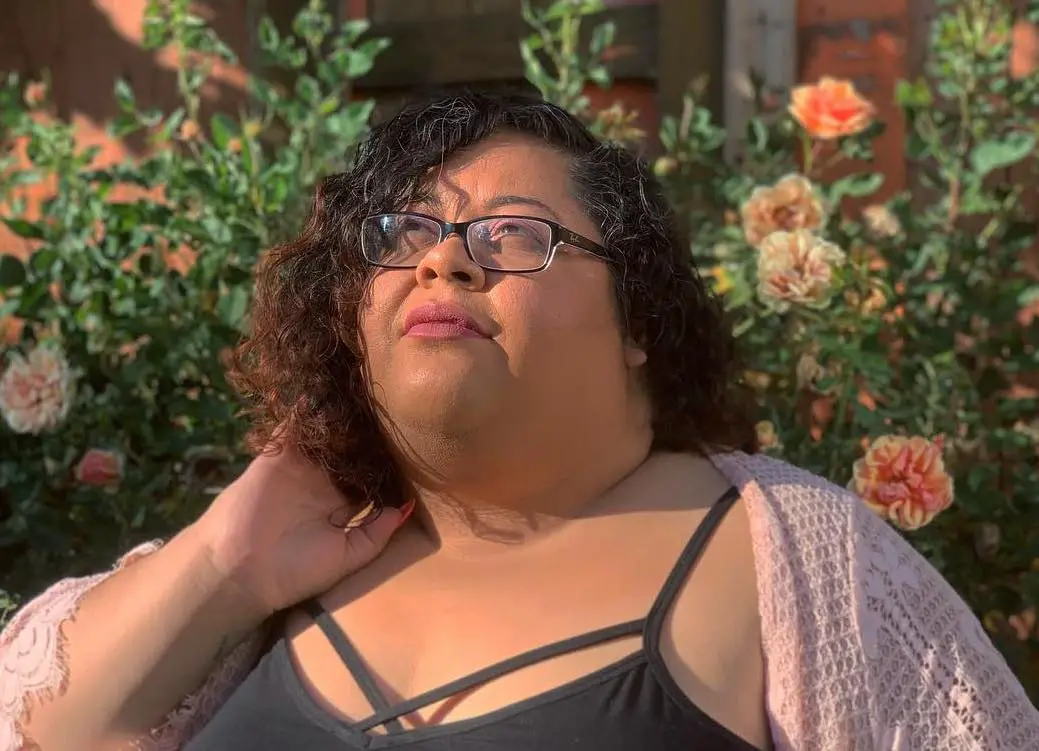Yesika Salgado is a “Flat Fly Salavadoran Poet” based in the bright city of Los Angeles, and she’s made quite a name for herself through print and the ever-evolving world of online poetry.
“Tesoro,” her second poetry collection, was released early this year and contains a treasury of memories about the author’s family, the women it features and Salgado’s identity. On the cover of “Tesoro,” a lemon tree stands tall, a representation of the lemon trees in Salgado’s LA home, which the author says served as a backdrop for many events and gatherings.
Although she began by posting online, Salgado is now published by Not a Cult, a publishing house “dedicated to creating beautiful, intentional books,” and they meet this promise with their diverse selection of art and poetry books. “Corazón,” the poetess’s first published compilation of poetry, was released in 2017. Both “Corazón” and “Tesoro” continue to rank high and proud in Amazon’s Hispanic-American section of poetry, at spots six and seven respectively.
Like its highly acclaimed predecessor, “Tesoro” invites its readers to have conversations with the text about love, its meaning and what it means to walk away from it with questions that requires soul-searching in order to be answered. While “Corazón” focused on the starvation for love, “Tesoro” moves to survive the disillusion of love.
Yesika Salgado’s Treasure
Although Salgado is only in her early 30s, she’s already managed to achieve a large following and is planning to release her third collection, “Hermosa,” this fall. Her heritage, family and art are displayed with care all across her social media pages. From Twitter and Instagram, the author not only posts snippets of her poetry but also represents her support of Latina representation, women and her community.
In “Canela,” one of the first poems in “Tesoro,” Salgado makes a declaration of love for herself, her body and her roots. She declares: “I am a brown woman who writes poetry about her brown life” and emphasizes how her “accent curls” and invites readers to “look at the cursive of my flesh.”
https://www.instagram.com/p/BwQhV1CFelU/
You can read about her identity and exploration of it throughout the majority of “Tesoro,” but sections two and three really dig into sexuality and romantic love. In “The Belly Has Question,” moments of intimacy are overshadowed by insecurity as Salgado writes, “what if I got in the way? / what he embarrassed?”
Similarly, in “On Loving Someone That Doesn’t Love You Back”” Salgado compares wanting someone in vain by comparing yearning to wanting to purchase a dress you do not have the correct currency to purchase.
Love, family, heartbreak — it’s all relatable poetry, words that have crossed your mind or haunted you. Is my body enough — is my love enough? This relatability is often an attribute of internet poetry, whose relationship to traditional medium is still a hot topic of debate. But the reason that Salgado’s writing goes a step further than just being relatable is because she’s not just writing about women. She’s writing about women of color or women who do not fit societal standards. What is older, traditional poetry about kings and castles to women who do not belong to those groups?
When speaking to The LA Times, Salgado commented on how her audience of multiethnic readers “don’t read journals — they are homegirls that normally wouldn’t be interested in poetry.”
“Tesoro” is a treasury of Salgado’s life and family and its formatting and accessibility are critical to her message of inclusivity. Poetry is no longer just about Whitman and Poe, but a form of writing that allows writers and readers to connect deeper than ever. Social platforms are creative outlets where poets such as Salgado can reach an intended audience that a few years ago could not have found her.
From Hungering for Love to Burying It
The first section in the collection is titled “Nostalgia” and references the previous book as she opens this one. Salgado writes, “ … I write a love note to a mango hanging on a tree I have not seen in years,” and it feels as dynamic as moving on from heartbreak.
In an interview with Fierce, Salgado talks about the thematic nature of “Tesoro” and its influence. “‘Tesoro’ is dense and difficult,” she said. “It asks hard questions and doesn’t necessarily answer them the way ‘Corazon’ answered its own questions.”
You can see this idea of unanswered questions in poems such as “Polaroid,” in which a mother sits beside her husband, “legs shaped into a question mark.” Another piece, “Terremotos,” tells of a family who lived in a “lived in a tiny house / with missing windows / so it always seemed / as if their home was squinting.” Both poems hint at unease within a home without pointing directly to it.
Instead, Salgado’s writing presents glimpses of childhood memories and disappointments, proposing that her audience digs into their own experiences with familial love.
“Tesoro” takes its time in celebrating the women in Salgado’s family, the women in all of our families. “Las Locas” is an ode to the women that stand out for display what may be considered unwomanly behavior. Salgado recognizes “the one who drinks beer and plays poker” and “the chismosa no one tells scandals to / because she writes everything down,” are sins that the men in her family would not be chastised for doing.
Putting Disappointment into Context
Besides a love for her roots and for the women in her family, Salgado’s “Tesoro” dedicates a large portion to placing the love for an imperfect father into context. When you’re young and innocent, it can be difficult to put the pieces together if someone is acting abnormal in your family. Growing up with said idea can be painful, and “Tesoro” takes readers on a journey to healing and understanding how we love those who have hurt us.
The vilification of women is often pronounced by men, and this is especially true in families.
“Papi’s Second Death” takes place in the fifth section of “Tesoro,” amidst poems of identity. It’s a heartbreaking moment in which a daughter is told her father’s sins. The lines read:
“I know his sins
I lived them
I know his love
I lived it
I grieve for the daughter I will never be again.”
Salgado wraps up “Tesoro” with a celebration of life. Her last piece is a funeral scene in which she asks mourners to not reject her mother’s stacked plates of food, and to listen to a mixed playlist of Drake and Juan Gabriel. It’s a celebration of her culture, the men in her life whose “masculinity only allows them/to be tender through laughter” and the women who support her.
“Hermosa,” Salgado’s third collection, will be released in September.
















